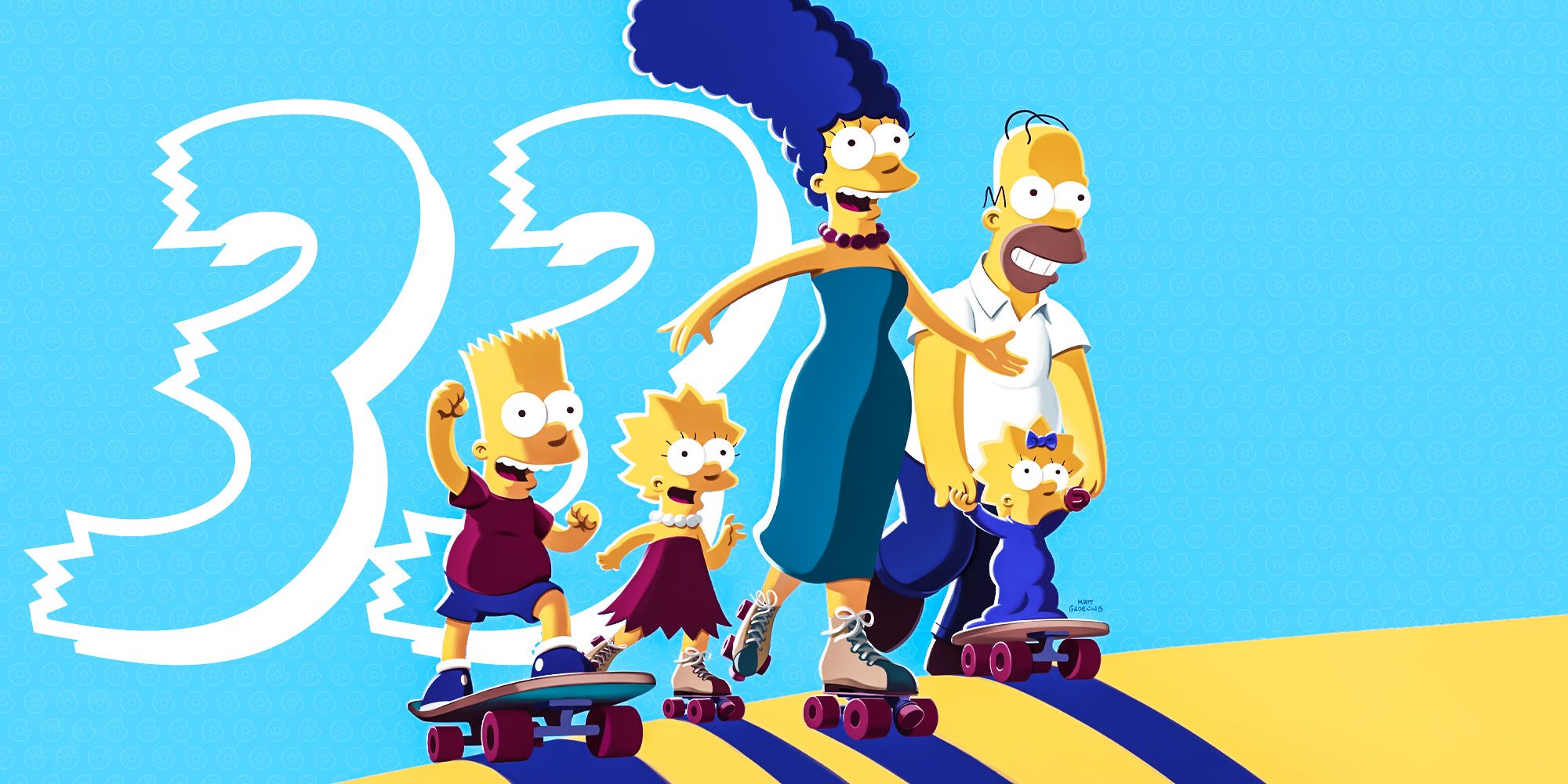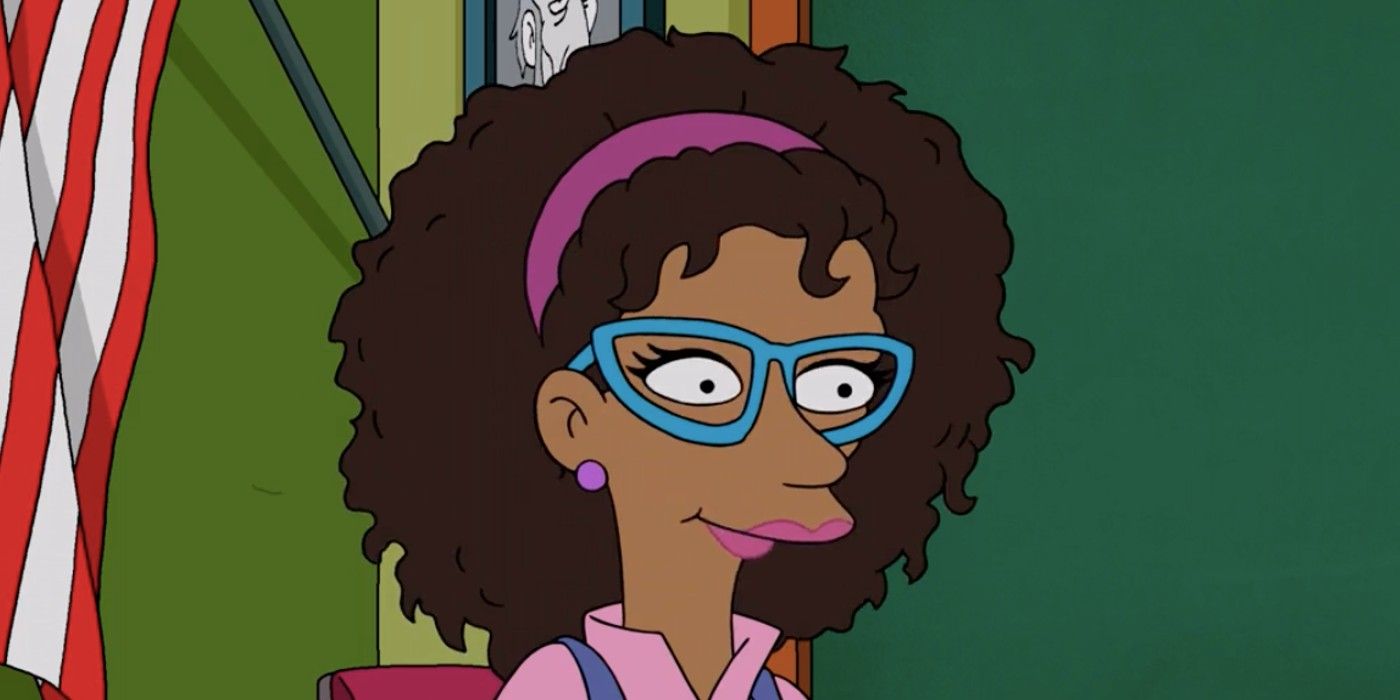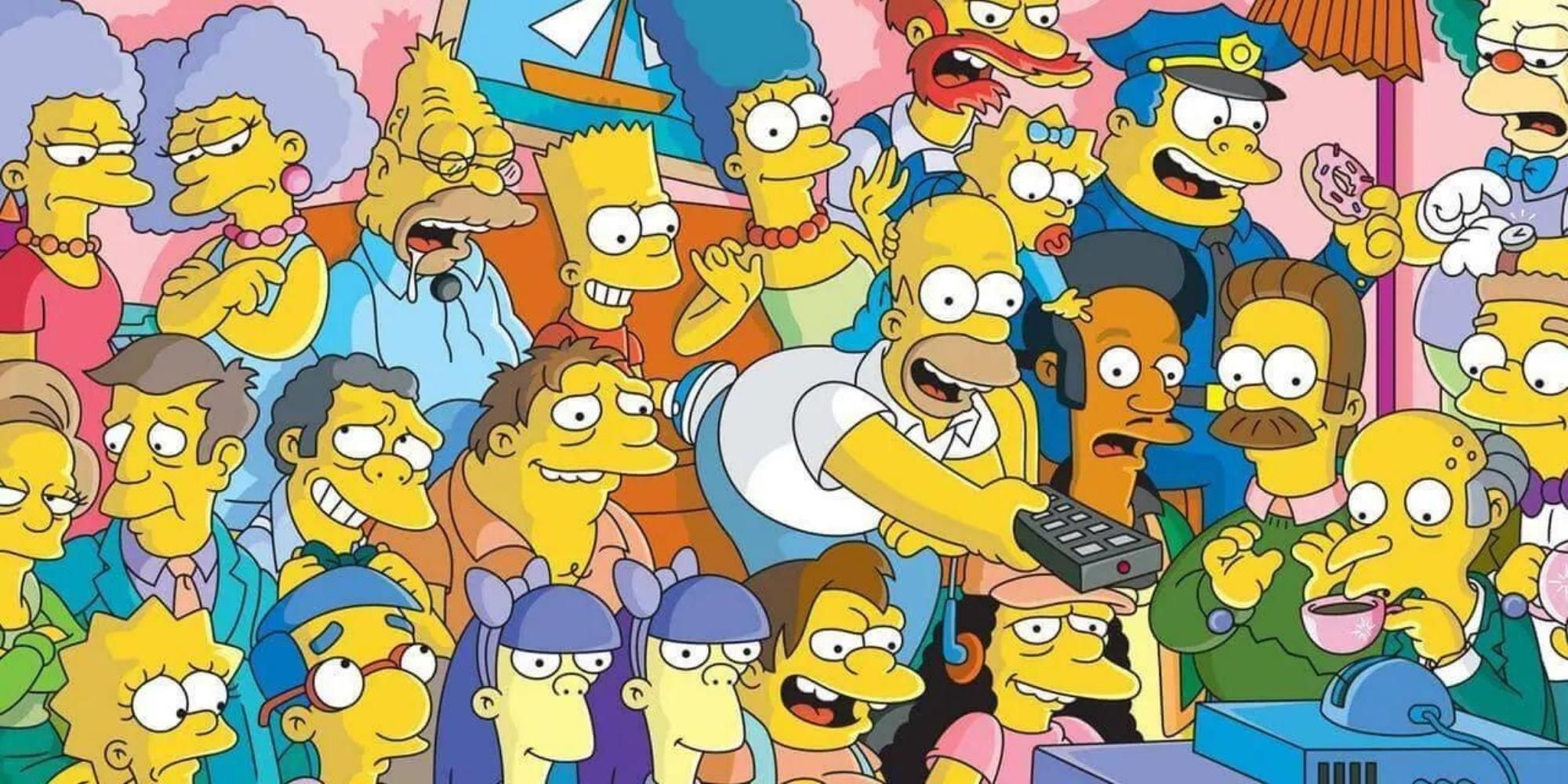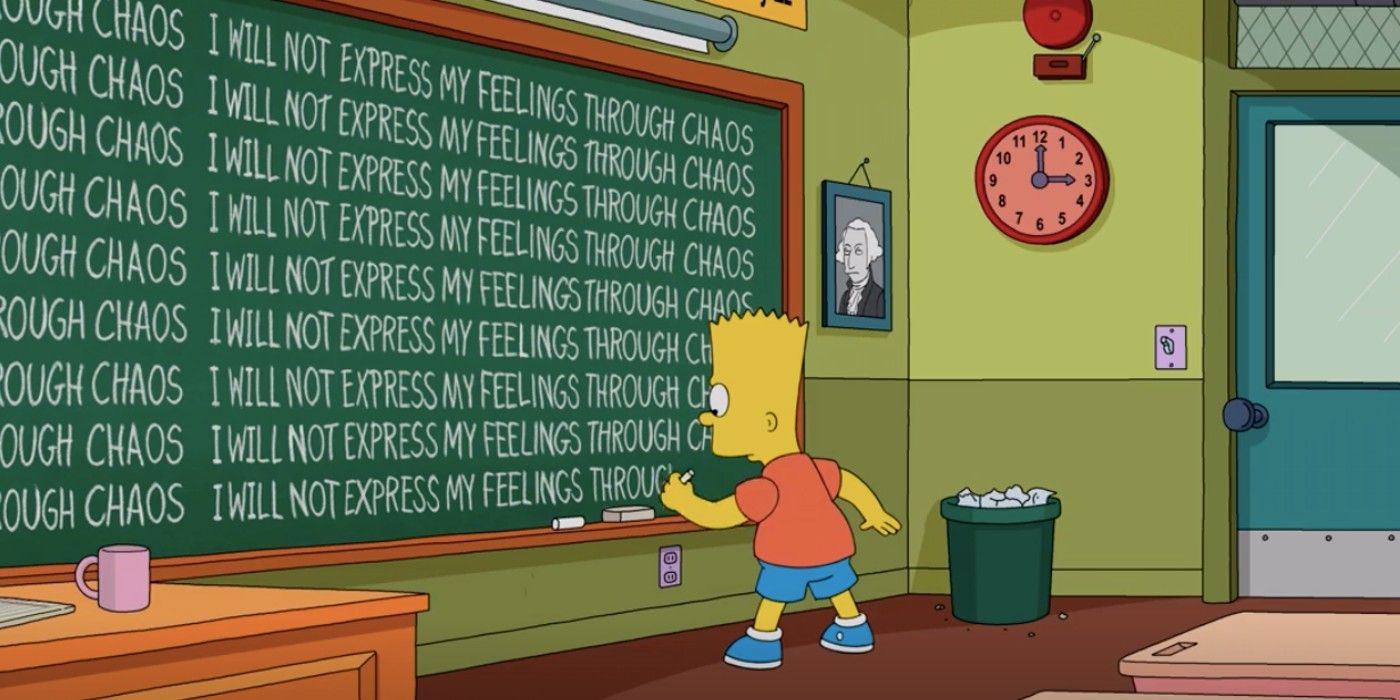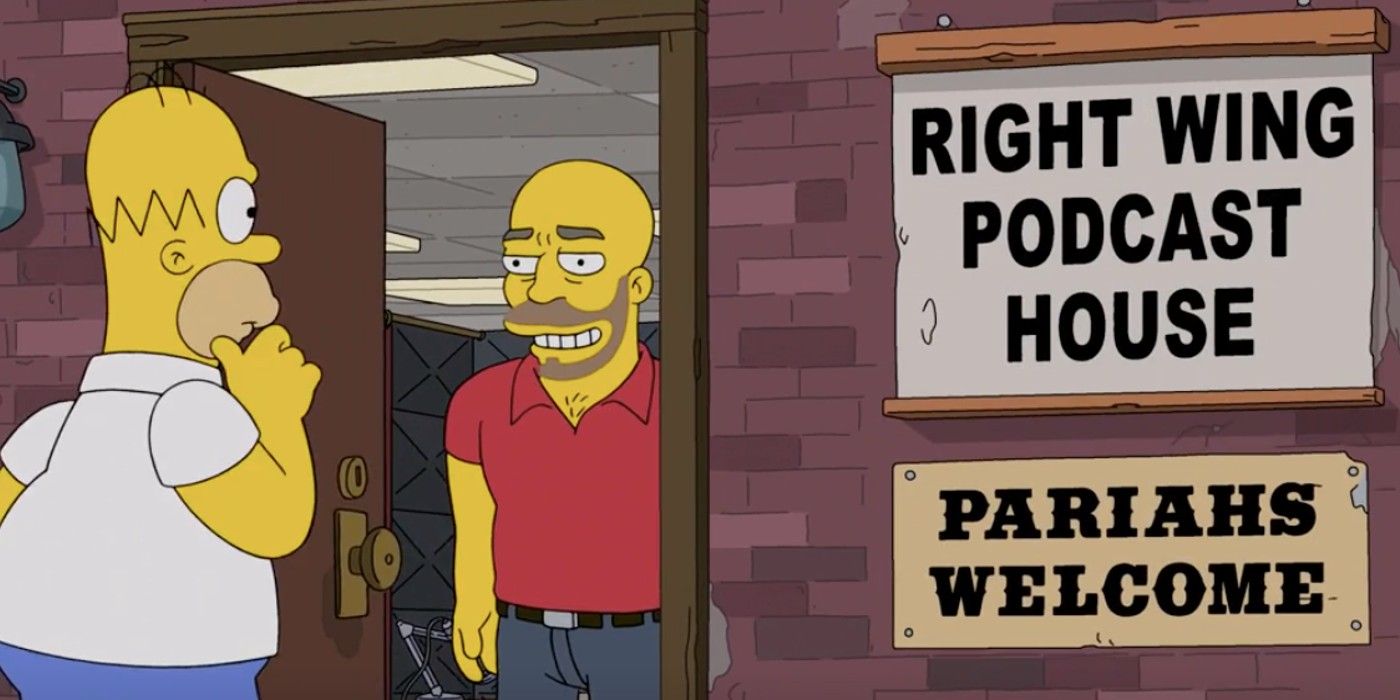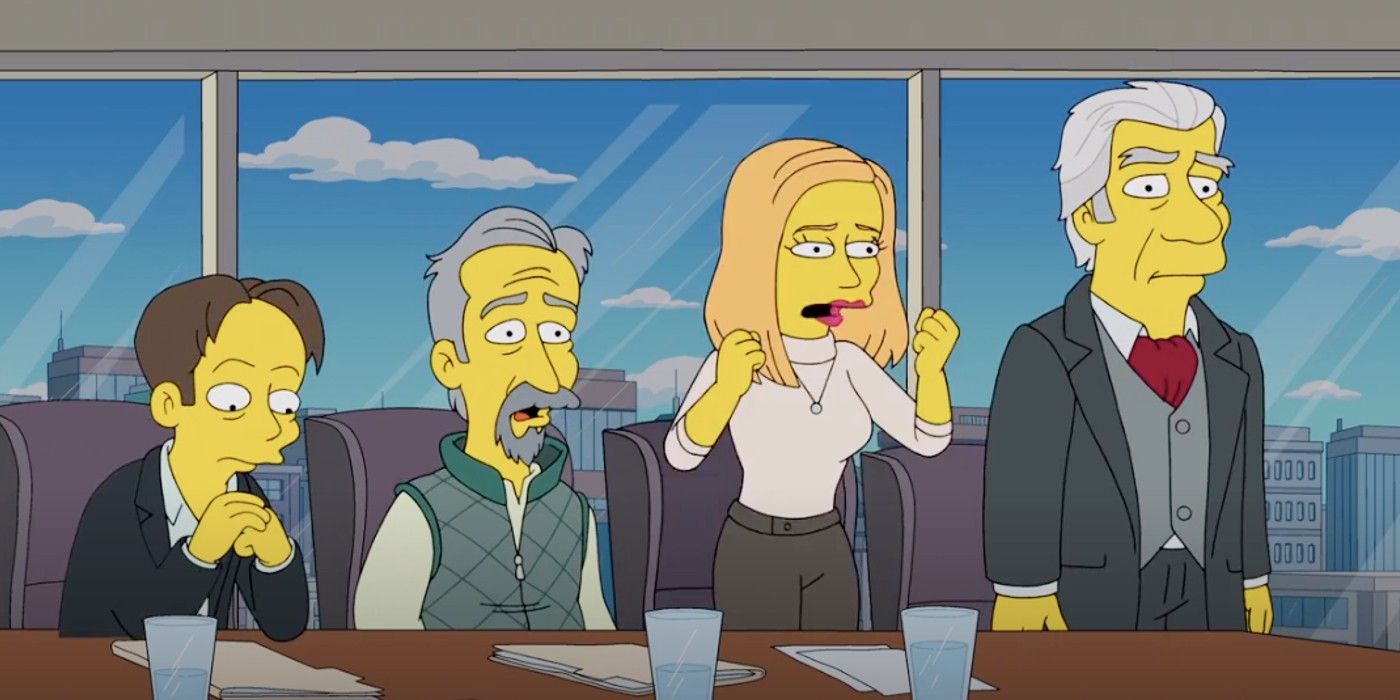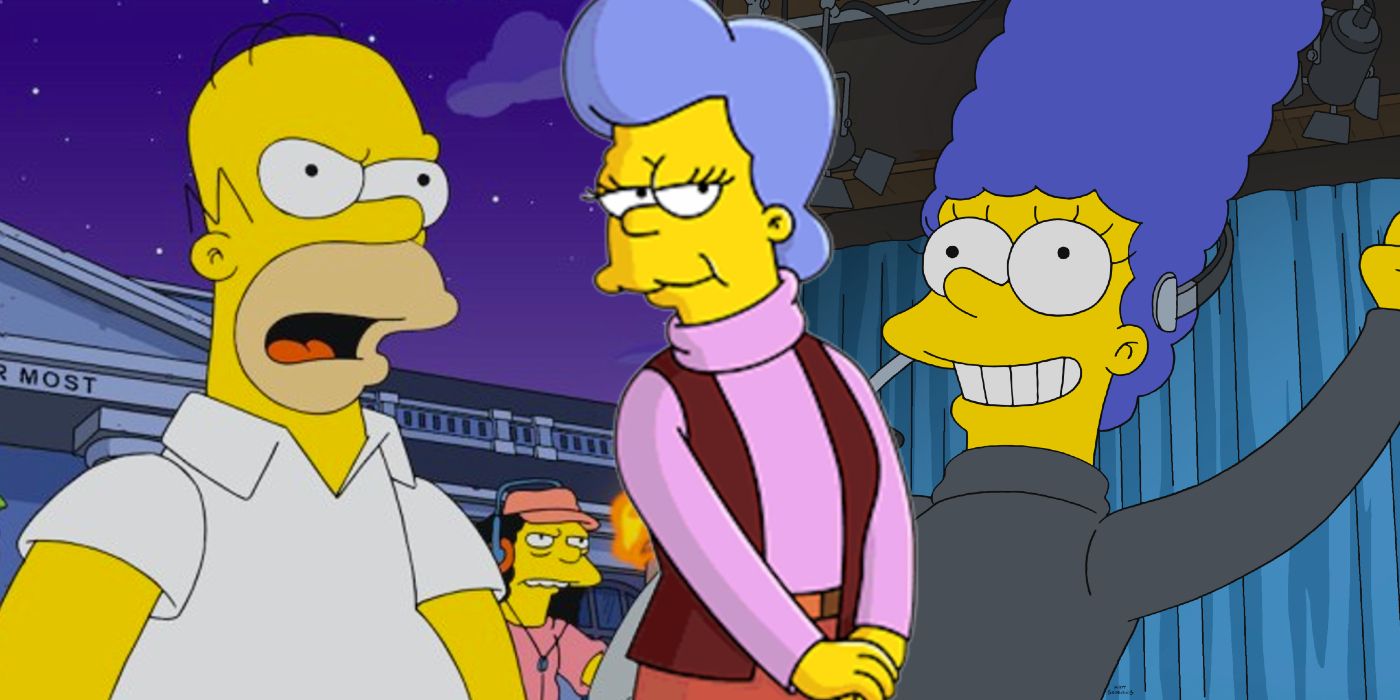Now that The Simpsons season 33 is at an end, it is easier to see which of its changes helped the show and which ones hindered its success. The Simpsons is a TV institution. Now about to enter its 34th season, the long-running anarchic animated sitcom is also one of television’s most influential comedies.
However, the critical reception of The Simpsons season 33 can’t compare to that of the show’s earlier years. Although new outings of the show often reference (and retcon) early-season episodes, The Simpsons has never been able to recapture the critical success that the series had in its golden age. Since around season 12, The Simpsons has been declining in terms of both critical and fan reception, a trajectory that a handful of successful seasons have not been able to reverse.
In season 33, The Simpsons found time for some memorable guest stars, but the series also over-relied on parodies of television shows that weren’t topical enough to work. The season attempted some timely political satire, which proved a mixed bag as a whole. The show also introduced a slew of new characters, like Kerry Washington as Ms. Krabbapel’s replacement, but it was paradoxically at its strongest when fleshing out older Simpsons stories from new angles. With another 22 episodes behind it, here is everything that worked and everything that didn't work in The Simpsons season 33.
Worked: The Simpsons Season 33’s Guest Stars
One of the strongest elements of The Simpsons season 33 was the show’s new guest stars. This was quite an achievement since, in recent years, a surfeit of big-name guest stars has repeatedly been singled out as one of the show’s biggest problems. While TikTok star Charli D’Amelio’s guest appearance didn’t add a lot to the episode she appeared in (and made The Simpsons’ bizarre Angela Merkel parody all the more confusing), by and large, guest stars fit season 33’s stories well. From Kerry Washington’s Krabbapel replacement to The Weeknd playing two characters in an ambitious cameo, The Simpsons season 33 didn’t over-rely on the fame of its celebrity guests and instead wrote interesting, engaging, and most importantly, funny characters for them to play. This did, however, lead to one of The Simpsons season 33’s recurring problems.
Didn’t Work: Too Many New Characters
While a lot of the new characters introduced in season 33 worked well, there were simply too many of them for The Simpsons to keep up with. The series already has a cast of thousands, and centering entire episodes of The Simpsons season 33 around obscure figures like Superintendent Chalmers’ daughter Shauna or Cletus’s love interest Brandine proves that the show expects viewers to keep track of its expanding list of supporting characters. However, this is nigh-on impossible when almost every episode of season 33 introduced new characters, and many of them — from Marge’s middle-school principal to Homer’s shady image consultant, Theo — are unlikely to ever be mentioned again.
Worked: The Simpsons Season 33’s Timely Satire (Sometimes)
Thanks to the show’s eight-month production schedule, The Simpsons is not the fastest wit when it comes to political satire. Such timely humor tends to date terribly, which has resulted in some embarrassing incidents like The Simpsons referencing fads and memes such as Pokemon Go and Baby Shark over a year after their popularity peaked. However, while The Simpsons competitor South Park’s satirical humor was far more timely, a surprising amount of gags that were centered around current events succeeded in The Simpsons season 33. For example, the season finale’s brutal song and dance routine about the decline of the middle class was authentically sharp while similarly glib gags about the lottery preying on the hopes of the poor worked well earlier in the season.
Didn’t Work: The Simpsons Season 33’s Timely Satire (Sometimes)
While the political satire of The Simpsons season 33 featured more bite than the show’s most anodyne outings, there were still a lot of confused and confusing gags that didn’t work and felt like an attempt to remain relevant. The Simpsons' misguided Joe Rogan parody, which never actually named the uber-famous podcast host, was perhaps the most galling example of the show pulling its punches, but the inexplicable Angela Merkel cameo was also a let down from a once-sharp series. The Simpsons season 33’s political satire tended to work better when it focused on big picture issues but fell apart when it targeted specific individuals, an issue that led to another of the season’s problems.
Didn’t Work: The Simpsons Season 33’s TV Parodies
By the time that The Simpsons spoofed Bridgerton’s raunchy sex scenes, the Netflix hit had already aired its surprisingly chaste, less explicit season 2. When The Simpsons spoofed Succession, a comedy about a dysfunctional family, the creators didn’t think to put the famously dysfunctional Simpsons family members in the roles of the Roy clan. When The Simpsons spoofed Netflix, the episode focused on prestige TV offerings that weren't even produced for the streaming service but instead originally aired on FX and AMC. All told, The Simpsons season 33’s television parodies lacked the specificity that makes spoofs successful and ended up feeling like they were written by writers who hadn’t watched the shows they were making fun of.
Worked: The Simpsons Season 33’s Self-Referential Plots
Surprisingly, delving into the history of the Simpson family worked wonders for The Simpsons season 33. Even though the show has annoyingly ignored continuity from time to time, it was able to offer alternate versions of earlier events and revisit familiar stories in new ways through The Simpsons season 33’s retcons. An appearance from Homer’s late mother was more moving than expected while Homer and Marge’s wilderness trek, which borrowed from both Homer getting lost in the wilderness in season 1 and season 9’s “Natural Born Kissers,” was a charming adventure whose references to earlier episodes made it all the more affecting. Although a lot of ink has been spilled on the topic of The Simpsons relying on nostalgia for the show’s glory days in its later years, the self-referential moments of season 33 prove that the show can succeed by leaning on its history.

